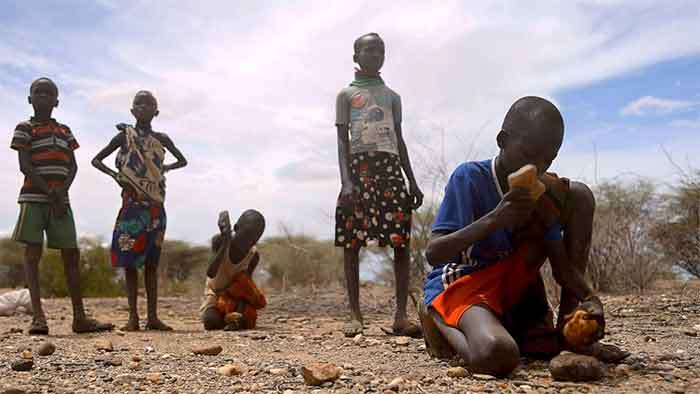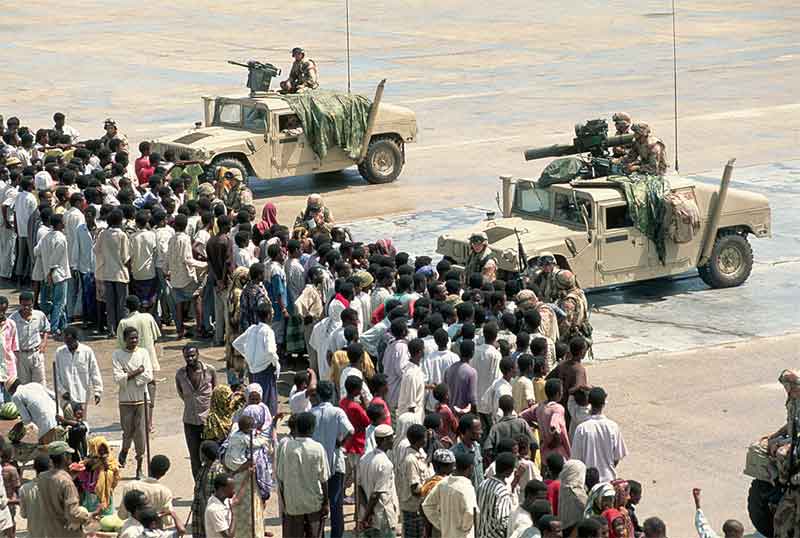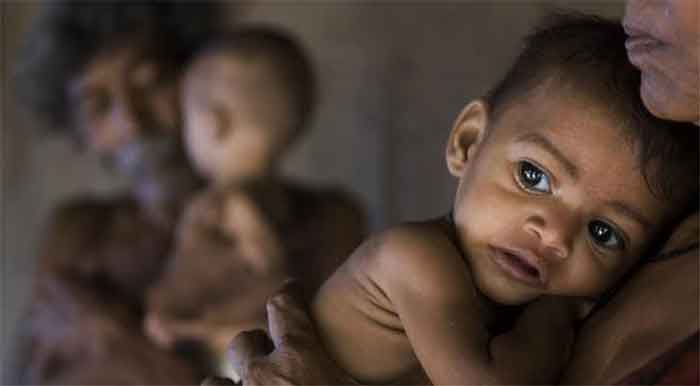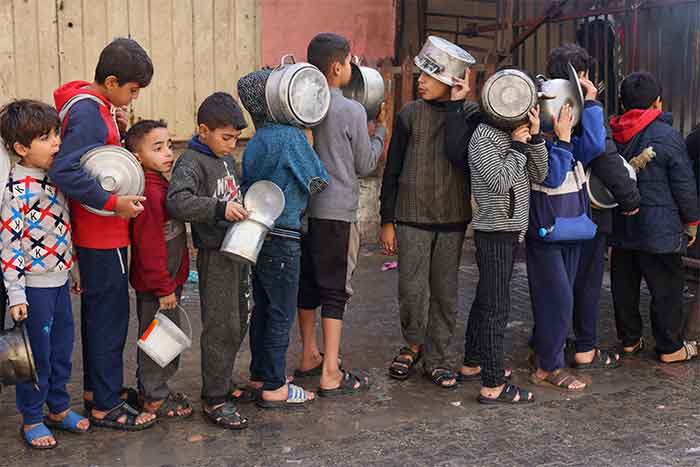
In the hunger map of present day world, Somalia is probably the most seriously affected country of the 21st century. Somalia is reported by the UN to have lost 260,000 lives in and around 2011 to hunger and famine deaths, one of the very few countries in the world to have such a high number of recorded hunger deaths in recent times, despite having a population of only around 17 million or so. Today, just a decade or so later, the country is probably in an even worse situation. At that time there were three consecutive rain failures, now there are four already and a fifth one likely. In 2011 the number of seriously drought affected people was nearly half of the number affected now. This number is now over 7 million, almost half of the total population of 17 million. The number of people who are in emergency situation (phase four and above), a stage where starvation deaths can take place, is 2.2 million, while those in the most serious phase 5 situation–called catastrophic—is 300,000—the highest in any country, particularly when seen as percentage of total population. Reports from the top hospitals in the capital city of Mogadishu say that on average every minute a child suffering from serious, acute malnutrition is brought for treatment. Some are brought in a terminal stage and die soon, while others perish in the course of the journey from remote parts.
Yet the ancient history of Somalia and its neighborhood tells us of civilizations flourishing in very early times. Much later, in the 15th century Vasco de Gama wrote of the rich palaces, mosques and other buildings he saw here. Records of 16th entury travelers speak of rich trade with not just Arabia and Persia but India, China and more distant countries as well. Textiles and spices from India, for instance, were traded with gold and ivory. In fact India had another less known connection—when the British made their initial inroads here their Somali territory—around the last decade of the 19 century– was placed for some time under the the imperial government of India!
One reason was the long coastline of Somalia—perhaps even today the longest for any African country—giving important trade advantages. Somalia’s historical prosperity suffered badly under the combined onslaught of three colonial powers—Italy, Britain and France ( the last mentioned were confined to the smaller area now known as Djibouti, the last to get freedom from colonial rule).
Over the centuries this country had learnt to use its natural resources well by combining systems of settled farming with nomadic pastoral communities, so that in times of environmental and seasonal stress animal herds could be moved to areas more capable of supporting them. However competing colonial powers were more interested in drawing artificial border lines, dividing territory and introducing large monoculture plantations than in considerations of longer-term sustainability. As problems of people increased, there was much resistance and dervesh rebels were able to inflict several defeats on British colonizers although ultimately the much bigger firepower of the colonial power prevailed. The fact that Italy and Britain were fighting each other in the Second World War also brought more conflict here.
This conflict never really went away as after independence in 1960 this country became an area of super-power rivalry. Depending on a complex of factors, the USA was friend and foe in different years, and so was the Soviet Union. In addition the artificial divisions created by colonial rulers had also created conditions in which civil strife was more likely, and while departing Britain had also taken some actions which increased the chances of a conflict with Ethiopia later. In the middle of all this, this predominantly Muslim country could hardly remain unaffected by faith fundamentalism based militancy. So Somalia saw it all-a coup, a prolonged civil war, super-power proxy warfare, conflict with bigger neighbor Ethiopia, spread of Islamist militias, feuds within them and the fight of national army to curb and oust them, loss of central authority over vast areas for long periods and declaration of independence by a separate Somaliland in the north-west. All this also invited much critical talk of ‘failed state’ for certain periods.
Things appeared to be improving for some time, but the big terrorist attack in Mogadishu which claimed 500 lives in 2017 was a big setback (as also the more recent attack in October this year). The Islamic militant group al-Shabab still has a powerful presence in several areas.
All this conflict has been taking place at a time when due to climate change there is greatest need for peace. As the sustainable life patterns of several centuries were shattered very rudely and badly by colonial rule, the danger of disruption in times of climate change increased even more and so there was a big need to have complete peace in which sustainable systems of development and environment protection could be set in place. However this never got a fair chance due to prolonged conflicts which further aggravated the disruption caused by colonial rule and further broke the resilience of rural communities. Their ability to prepare for and adapt to climate change has been reduced instead of being enhanced.
There is therefore a strong case for rushing special climate funds to countries like Somalia which face such emergency situations as starvation deaths. At present the relief effort in Somalia is highly under-funded, so that even when displaced and uprooted people manage to reach the special camps set up for them, they do not always get the food and medical help desperately needed by them. Today there is an urgent need for stepping up relief effort, to be followed by peace efforts and efforts for improving prospects for sustainable development and resilience as well as unity of communities.
Bharat Dogra is Honorary Convener, Campaign to Save Earth Now. His recent books include Planet in Peril, Protecting Earth for Children and A Day in 2071.















































